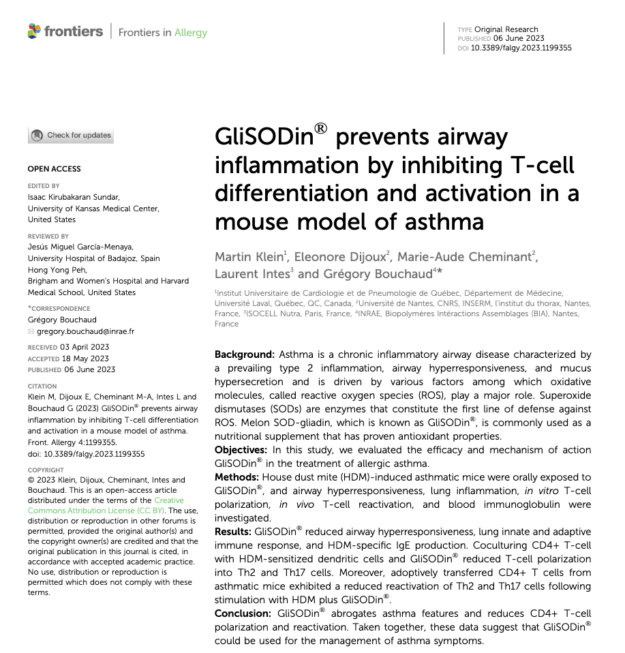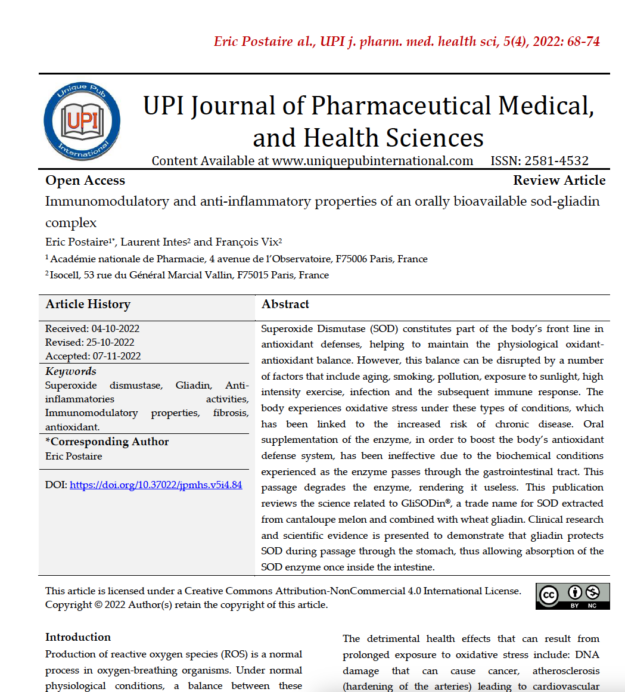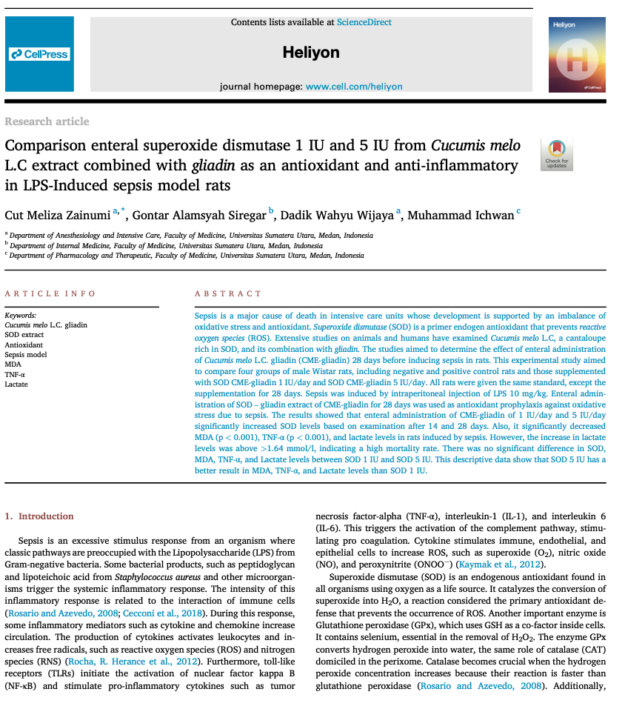GliSODin® prevents airway inflammation by inhibiting T-cell differentiation and activation in a mouse model of asthma
GliSODin® abrogates asthma features and reduces CD4+ T-cell polarization and reactivation. Taken together, these data suggest that GliSODin® could be used for the management of asthma symptoms.










